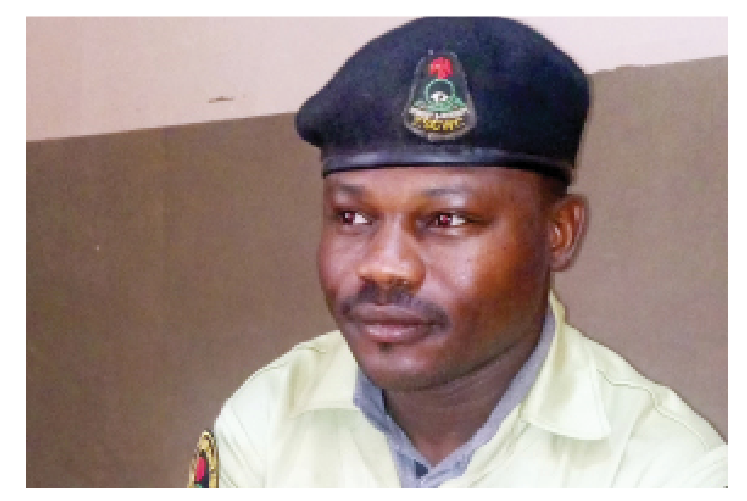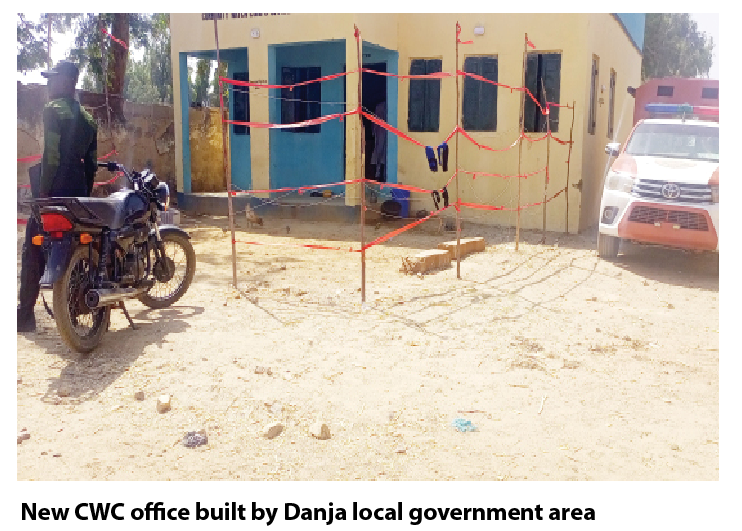For years, rural communities in Katsina State have been devastated by bandit attacks, including killings, kidnappings, and cattle rustling, leaving lives shattered and fear entrenched.
However, the story is changing. In the face of continued violence, the residents have risen up, taking up arms and forming self-defence groups with the support of the government.
While security forces continue their operations, local communities have become essential in protecting their homes. In some of the hardest-hit areas, such as Batsari, Jibia, Kankara, Sabuwa, Dandume, Safana, Faskari, Matazu, Musawa, Danja, Kafur, Bakori, Malumfashi, Dutsin-Ma, and Danmusa, community-led initiatives have dramatically reduced crime and restored a sense of security.

Organised into self-defense groups, vigilantes, Community Watch Corps (CWC), and Civilian Joint Task Force members, locals are patrolling villages, confronting bandits, and collaborating with security forces to reclaim peace. “We got tired of running,” says Mallam Sani, a vigilante leader in Safana. “Now, with government support, we have the tools to protect ourselves.”
Under Governor Dikko Umaru Radda, the state government has been instrumental in this local security effort. Recognizing the importance of community involvement, the administration has recruited and empowered CWC members, providing them with necessary logistics and a monthly allowance to sustain their work.
“We are committed to ensuring peace in every corner of Katsina,” Governor Radda declared. “Supporting community-led defense efforts has been crucial to our progress.”
Investigations confirm that these initiatives are delivering tangible results. Local government chairmen have reported a significant reduction in attacks, with community-based defense strategies proving highly effective.
In Faskari, local government chairman Musa Ado highlighted a notable decline in attacks, crediting the presence of 150 CWC members, vigilantes, and security personnel working together in the area. He also pointed to the role of local negotiation efforts in restoring peace.
“IDPs have returned to their homes, and the town is regaining its stability,” he said, noting that recent attacks had been carried out by bandits sneaking in from Zamfara.
Dandume’s chairman, Basiru Musa, commended the bravery of 260 CWC members, 100 vigilantes, and security forces working together to restore 60 percent of normalcy in the area. “The bandits have changed tactics, now resorting to silent kidnappings before opening fire,” he said, highlighting the evolving nature of the threat.
While significant progress has been made, some regions remain at risk. Sabuwa, which shares borders with Niger, Zamfara, Kebbi, and Kaduna, has become a hotspot for conflict. Chairman Faruk Ayatu attributes the rising hostility to the governor’s refusal to negotiate with bandits. “They are threatening us, saying we must embrace the Kaduna peace deal if we want to sleep with two eyes closed,” he revealed.
Despite these challenges, Ayatu acknowledged the vital role of the CWC and vigilantes in repelling attacks and praised the government’s support for victims. “The governor provides aid to families of the deceased, covers medical bills for the injured, and financially assists freed kidnap victims,” he noted.
In Danja, CWC Commander Abdurazak Hamza proudly declared the area free from banditry, stating, “Bandits no longer follow Danja routes.” He credited the success to relentless community-led operations and government support, which have been instrumental in restoring peace in the region.
Kankara chairman, Anas Isah, revealed that 150 CWC members and 150 vigilantes are playing a crucial role in supporting security forces, thanks to the government’s provision of adequate logistics. This collaboration has been instrumental in improving security in the area.
In Batsari, chairman , Ali Mamman, noted that an 80 percent reduction in security threats, although insider leaks continue to fuel kidnappings. “The reduction in attacks is reviving economic activities, especially in agriculture, where the governor has provided additional incentives,” he said, emphasizing the positive effects of the improved security situation.
However, in Matazu and Musawa, a persistent challenge remains: informants, many of whom are women allegedly receiving payments from bandits. Matazu LGA Secretary Abdulsalam Aliyu revealed that two women were recently arrested for accepting ₦30,000 and ₦40,000, respectively, to aid the criminals. Aliyu, whose father was kidnapped and held for 21 days, praised the transformation in his area. “The presence of vigilantes and CWC members has reduced crime by about 80 percent. Now, we can sleep with both eyes closed,” he said.
Despite these improvements, security threats continue, partly due to a controversial peace deal in neighboring Kaduna State. “When one state cracks down on bandits or negotiates with them, the criminals simply move to the next vulnerable area,” explained security analyst Malam Ibrahim Lawal. “That’s why Katsina is still experiencing some attacks despite overall progress.”
Frontline local government areas (LGAs) bordering Kaduna and Zamfara are feeling the greatest impact of banditry. Local chairmen warn that without a coordinated security strategy across states, bandits will continue to relocate, prolonging the crisis.
Dr. Bala Abdullahi, a security expert and lecturer at Umaru Musa Yar’adua University (UMYU), praised Governor Radda’s initiative to empower local communities but raised concerns about the potential politicization of these armed groups.
“While this approach has proven effective, there is a risk that politicians could exploit these groups during elections,” he cautioned. He also advised the government to closely monitor these vigilante groups to prevent human rights violations, mistaken identity killings, and abuse of power.
Katsina’s battle against banditry has taken a new direction, with communities no longer waiting solely on security forces for protection. Although their efforts have brought much-needed relief and renewed hope, experts caution that the strategy must be managed carefully to avoid future challenges.
The fight for lasting peace in Katsina is far from over, but for now, residents are proving that they will not surrender without a fight.











